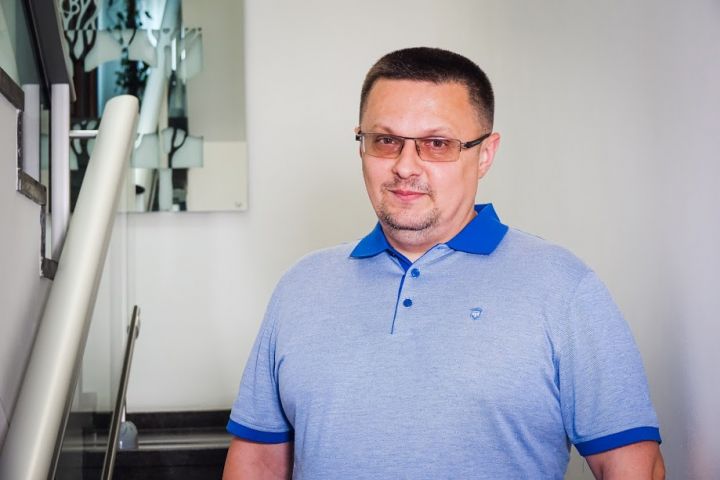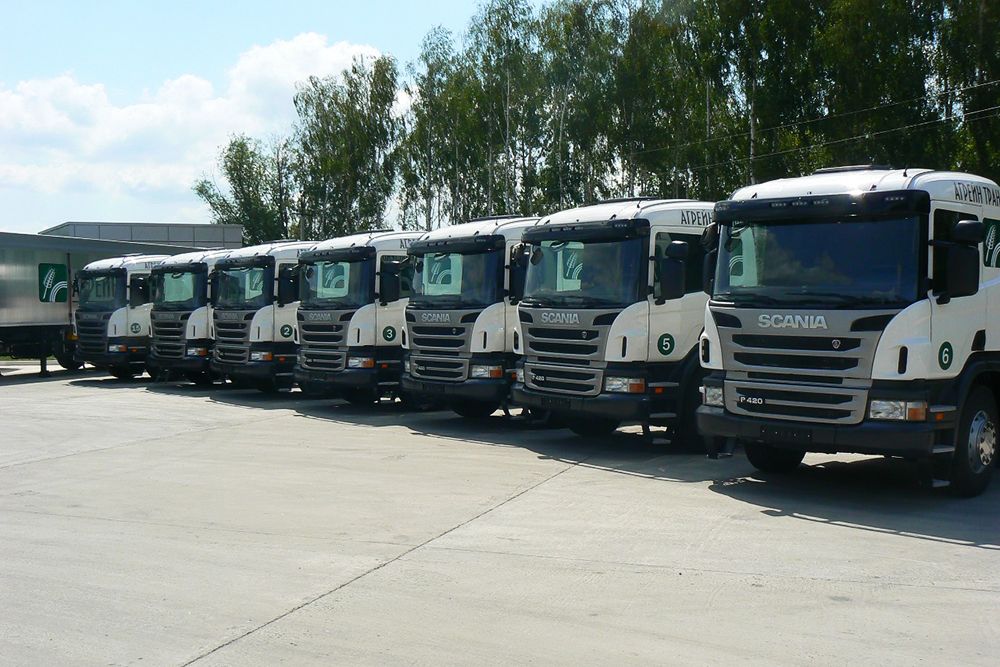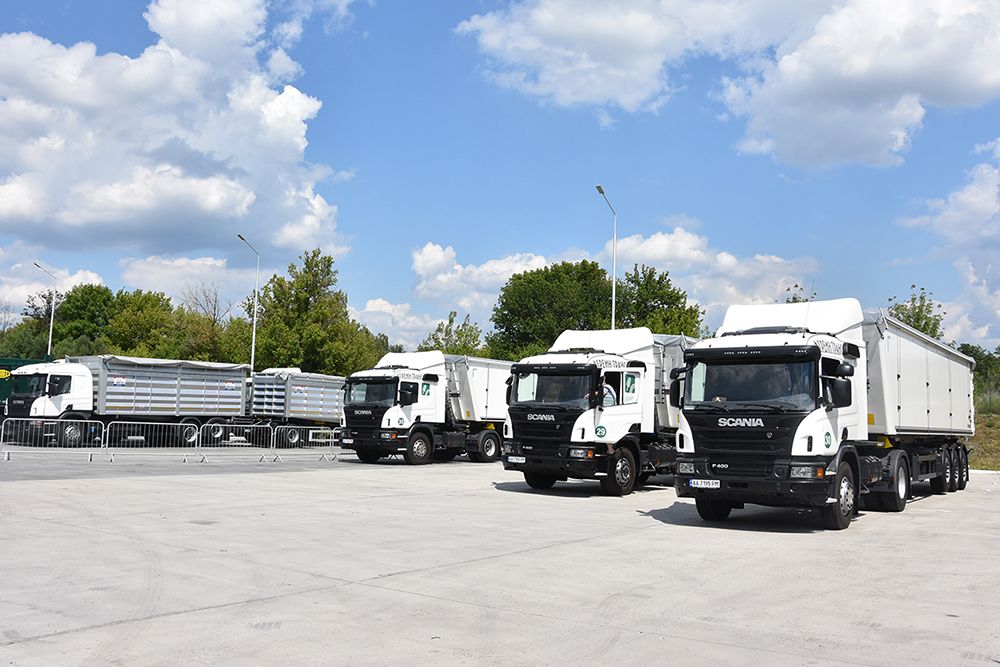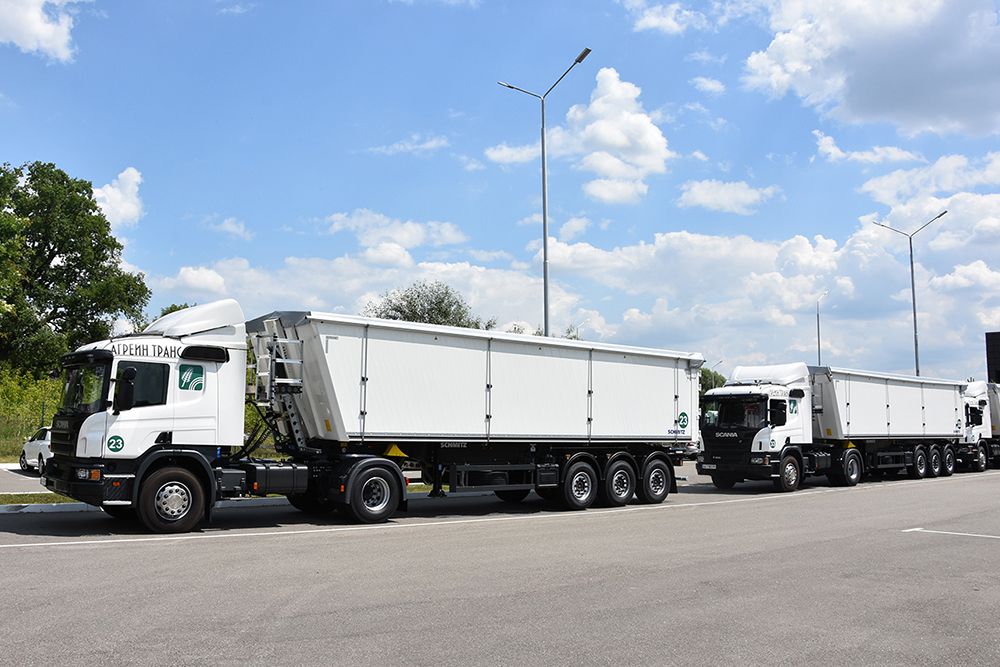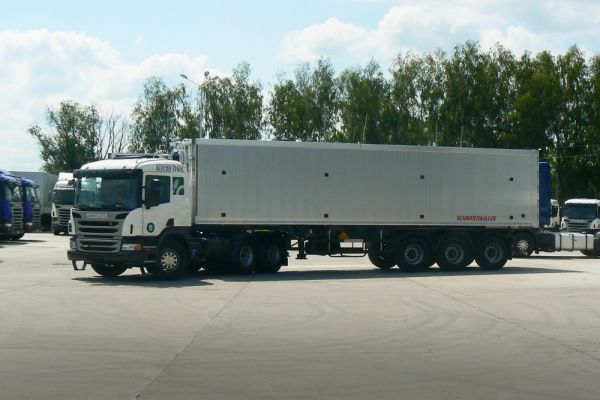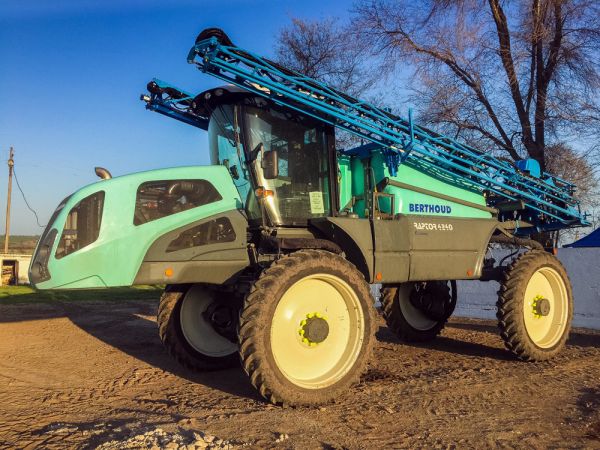Aleksandr Morozov: Bad Roads Set the Terms
Every agrarian is concerned with the transportation of crops. Choosing the right shipping company is an extra challenge since agrarians may run the risk of stolen crops or other misfortunes. Small businesses usually rely on external shipping companies while large agro holdings have their own transportation services.
The Director of Agrain Trans, a branch of the Agrain agricultural group, told Latifundist.com about the principles that govern the choice of vehicles, problems on the road, and best places to purchase gas. Let’s go!
Latifundist.com: Could you tell us about the beginning of your career in Agrain?
Aleksandr Morozov: I started to work for the company in 2012. My story is simple: I saw a job posting on the Internet and applied for the position. I had an interview with the HR director followed by many other interviews and finally, I got the job. That was the very start of Agrain Trans when we were just forming the team. The company was built from scratch. We needed to design the structure of the company, the relationship structure, job descriptions and to hire staff. We received new vehicles and hired drivers, carried out the first shipments. It was very interesting and much fun.
Latifundist.com: In 2012, Agrain Trans became a separate branch of the agro group. Was it a difficult start?
Aleksandr Morozov: When we received the vehicles we went to the fields right away to harvest the crop. We learned on the go, gained experience, "stepped on the rakes".
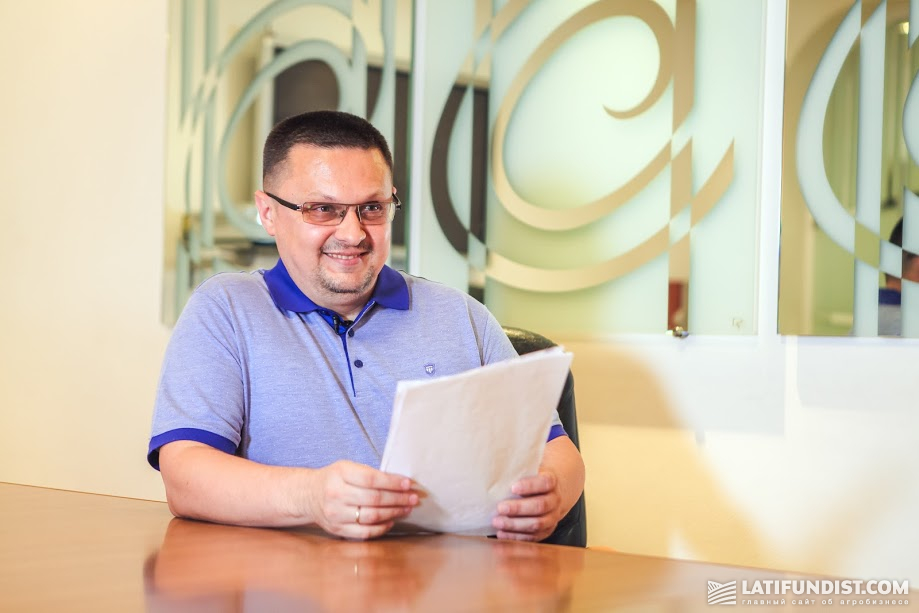
Latifundist.com: What services does your company provide today for the participants of the grain and oilseed crops market?
Aleksandr Morozov: We are well-known in the field. We ship grains, oilseeds, oilseed meal, fertilizers and other bulk cargoes. We have all the necessary equipment to load, tent, plumb and transport the cargo using GPS navi system. This allows us working with virtually any kind of cargo except for building materials, coal, and metal. Our semi-trailers are made of aluminium which makes them suitable only for transporting foodstuffs or bulk cargoes packaged in big-bags.
Latifundist.com: How much has your machinery park changed over the years?
Aleksandr Morozov: We received our first vehicles in 2012. Those were tri-axle Scania P 420 trucks with Schwarzmuller aluminium semitrailers for 57 m³ designed for grain cargo. We operated the first 15 machines in July 2012. We received 5 machines at a time and immediately dispatched them to harvest crops. In 2016, we bought 5 road trains: tri-axle Scania P 400, and Schmitz semi-trailers for 54 m³. They proved very efficient, and last year we bought another 15 biaxial Scania P 400. They are called “farmers” because these tractors are well-suited for working in the fields with a high ground clearance. These machines work well both on highways and in the field. Its limited capacity prevents vehicle overload which means that our shipments are conducted strictly within the law.
Latifundist.com: The machinery park of Agrain Trans includes 35 powerful trucks. Is there a need for modernization? Will there be any soon?
Aleksandr Morozov: We are very happy with our trucks. They meet the price-quality criteria and they are very efficient. Certainly, there are some issues, but we manage them as they appear. The “oldest” vehicle is six years old, the “youngest” one is a one-year-old, so we do not plan to change them in the near future. However, we will be steadily buying new machines next year.
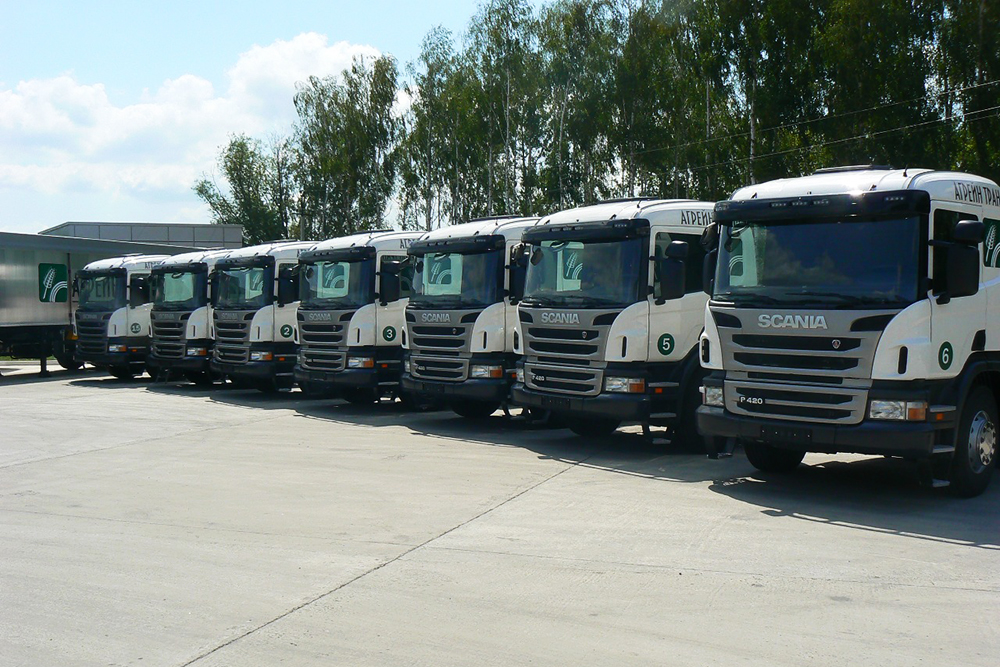
A company should acquire up to 5 vehicles a year if it wants to develop. Nowadays, there are many innovations, electric cars, gas, methane, propane, butane. There is no point in rushing to buy a lot of new vehicles at once. The market is very competitive. The more diesel we can economize, the more competitive we become. Thus, we do update our machinery park, but we do it in due time so as not to miss the world trends.
Latifundist.com: What are your criteria for choosing new machinery?
Aleksandr Morozov: The main criterion is durability. Why have we chosen the tri-axial machines? Because we have very difficult working conditions. Moreover, field conditions are complex as well. The roads are extremely bad in Odessa region, so durability is of great importance. Our trucks fully meet this criterion. We often monitor our equipment and compare it to some units we rent. We are very happy with our machines.
Latifundist.com: Do you buy machines from the manufacturer?
Aleksandr Morozov: Yes. All the machines are new. We used to buy tri-axial vehicles, now we go for biaxial. Their cost price is higher, but they are more suitable under our conditions.
Latifundist.com: Have you considered any alternatives?
Aleksandr Morozov: We have considered other brands, but there is always something we don’t quite like. We stay in touch with various agricultural producers, who have been using the machines for a year or two, and ask for their feedback. Based on that, we’ve decided to buy Scania machines, and we are pleased with the decision.

Latifundist.com: What is the combined weight of a road-truck and a loaded trailer?
Aleksandr Morozov: Three-axle road-trucks weigh approximately 16 tons; biaxial — 14.5 tons. We have chosen the two-axle tractors with Schmitz semitrailer because they can transport 24-25 tons.
Latifundist.com: Could you tell about unloading?
Aleksandr Morozov: We have tipper trailers. Besides, there are special cargo hatches at the back of each trailer which allow manual unloading and enable directing the cargo to conveyor lines at warehouses.
Latifundist.com: Your one-time shipment capacity is 850 t. Will you increase this figure in the future? Under what conditions?
Aleksandr Morozov: That is right. The average shipment capacity of a road-train is 24 tons; if 35 vehicles transport 24 tons, the overall capacity is 840 tons. We do not overload our trucks. On the one hand, it is pricey, on the other hand, it is prohibited. Besides, Scania trucks have inbuilt monitors which show the axle load. It helps to adjust the cargo accordingly. In the future, vehicles will be smart enough to be autopiloted.
Latifundist.com: Who are the clients of Agrain Trans?
Aleksandr Morozov: We work with many traders, large and small farmers, middlemen. We have our own security service who check papers, and if everything is fine, we sign a contract. We have successful cooperation with large traders. We have earned a good reputation. Therefore, we have an opportunity to work with those who offer the best conditions.
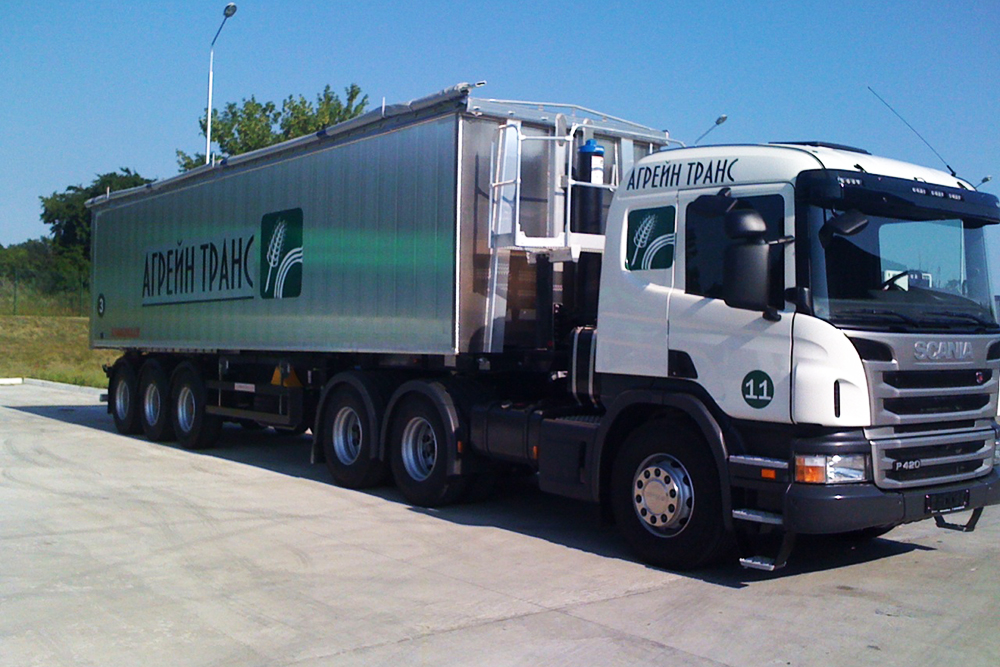
Latifundist.com: What is the ratio of external and internal orders?
Aleksandr Morozov: 50/50. We are part of the holding; thus, its needs are our first priority. If we have spare machines, we may use them for external projects. During the harvesting season, we mainly work for Agrain; when it is over, we are free to take other orders.
Latifundist.com: Do you work in the domestic market only? Are there plans to go international?
Aleksandr Morozov: At the moment, we cater for the domestic market and plan to stay home for now. We have received many offers from foreign market players but we have many clients in Ukraine as well. We do wish to join the foreign market in the near future, though.
Latifundist.com: What is the annual shipment capacity of the company?
Aleksandr Morozov: Agrain Trans transports around 300 thousand tons annually. I cannot give you the exact figures because we bought 15 new vehicles last year. The average capacity is 220-250 thousand tons. Some years ago we could load the trucks to the full. Now there are loading limits.
Latifundist.com: How many drivers work for Agrain Trans?
Aleksandr Morozov: There are two drivers per vehicle. They work in shifts. A shift lasts 15 days. We’ve experimented with the length of the shifts. We tried 5- and 10-days shifts, but a 15-day shift seems to work best of all. We try not to change the drivers of the vehicles. It motivates them to take due care of their machines according to the technical manuals.
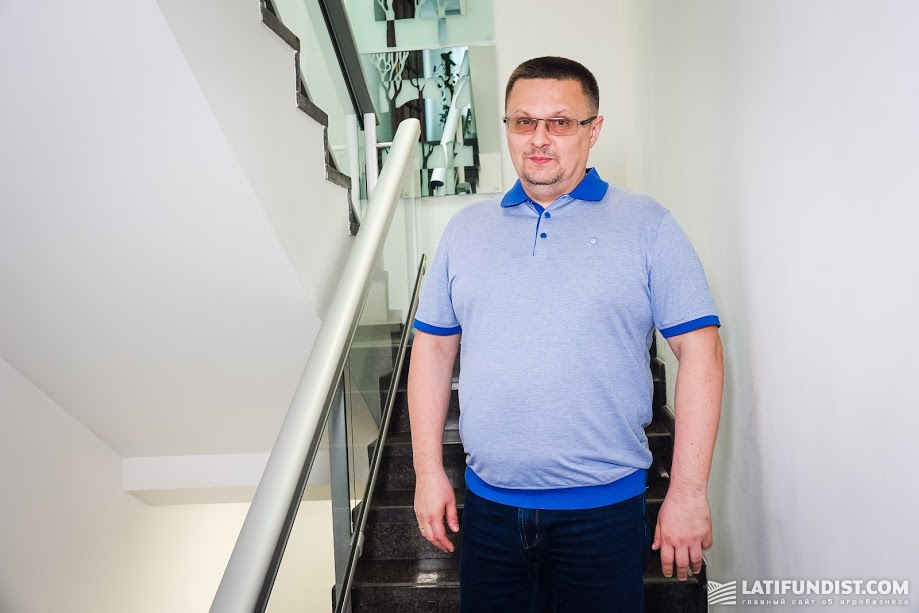
Latifundist.com: What is the longest working experience of your drivers?
Aleksandr Morozov: We have employees who have been doing their job for 25 years. They are seasoned drivers who take great care of their vehicles. They feel at home in their machines. In fact, it becomes home for them for 15 days. Everything should be perfect there. If you see that the cabin is a mess, you may fire the driver right away because it is a sure indication that he will be sloppy at work too.
Latifundist.com: Everything breaks from time to time. What are the common problems you face?
Aleksandr Morozov: Bad roads make chassis the weakest spot of a vehicle. The roads are so bad that neither running gear nor rubber of the new vehicles lasts long. We try to solve problems by ourselves. If something breaks down on the road, we send our technical units to repair it.
Latifundist.com: Do you have your own engineering service?
Engineering Service of Agro Holding "From Scratch": Nuances of Development
Aleksandr Morozov: Yes, we do have our own engineering service. There are two Volkswagen Transporter minibuses at its disposal. If something happens, they load the buses with all the relevant tools and go where they are needed. This saves time spent on fixing the problem.
Latifundist.com: Where is the service based?
Aleksandr Morozov: In Odessa, but we also run specialized checks at the service centers of the manufacturer. At the Scania service center, the checks are run by a computer. We receive the results of the checks and depending on the condition of the vehicle, we try to fix problems by ourselves or use the services of the center.
Latifundist.com: What is your fuel purchase scheme? Do you cooperate with any network of gas stations?
Aleksandr Morozov: We do. We also have our own capacities. If the vehicles pass our enterprises on their route, we deliver fuel with gasoline tankers there. We cooperate with many networks choosing those who offer the best price. Our choice is governed by the market rules.
Latifundist.com: Do your vehicles go right into the field or do you work with reloaders?
Alexander Morozov: None does that anymore. We could do that, but what's the point? We usually park a truck at the edge of the field and load it by either driving the combine to it, if the field shape allows that, or use the help of reloaders. We use dump trucks, so we can easily unload the trucks either at the threshing-floor of a farm or at the elevator.
Latifundist.com: What distances do your trucks usually drive?
Alexander Morozov: That depends on the order. The distance may vary from 0.5 to 1000 km. Once it was 0.5 km. We were commissioned to ship grain from the warehouse to the ship at the Port of Chernomorsk.
Latifundist.com: What is the shipment price?
Alexander Morozov: That depends on the distance. We had orders for a one-kilometre distance or 700 km. The price depends on the number of routes, the cargo, its cost, etc.
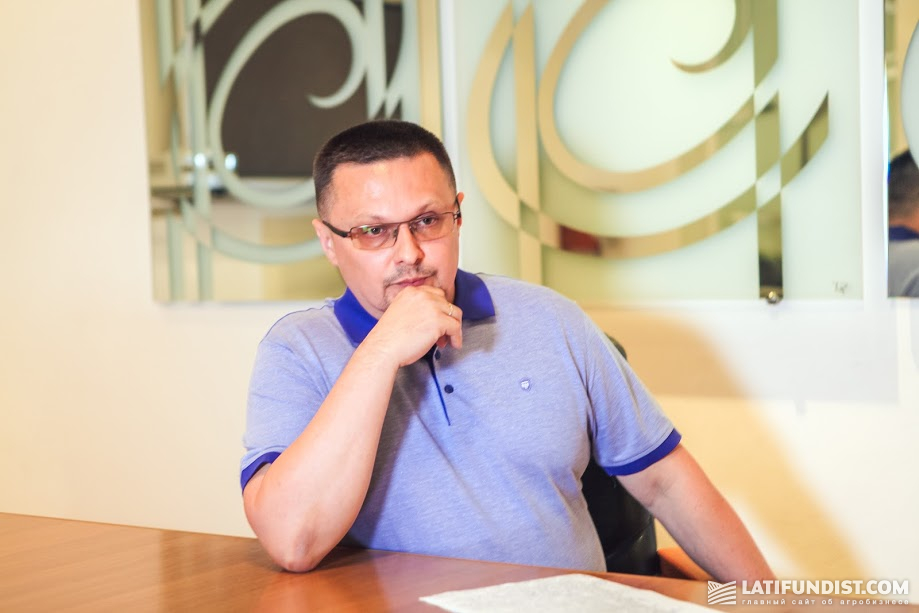
Latifundist.com: Do you cooperate with elevators? Do you have a "green corridor" or need to stand in line like everybody else?
Alexander Morozov: If we ship the grain of the holding, we do not need to stand in line. Our drivers know that.
Latifundist.com: Do you work with "private owners"? Do you rent vehicles?
Alexander Morozov: Since last year, we have started renting vehicles. This year, we have even been cooperating with private owners. It is likely that we will offer jobs to the best of them.
Latifundist.com: How many new employees do you plan to get in such a way?
Alexander Morozov: I do not know. It will depend on the number of applications. This year, for example, many people have applied, but we could not accept all of them, there were not enough vehicles. We will make a decision judging by their work this year. It will also depend on the number of orders. The more orders we have, the more people we need.
Latifundist.com: Thank you for such an interesting dive into the world of transport and transportation!
Sofia Yaroshenko, Latifundist.com

